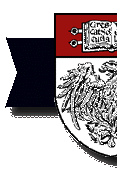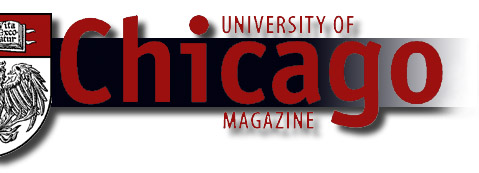 |

And Daniel
Tsui makes 70: Another Nobel Prize in physics
Add Daniel
Tsui, SM'63, PhD'67, to the list of Nobel laureates affiliated with
the University of Chicago. This fall, the alumnus received the 1998
Nobel Prize in physics, making him number 70. Tsui, the Arthur LeGrand
Doty professor of electrical engineering at Princeton University,
shared the prize with Stanford professor Robert B. Laughlin and
Columbia professor Horst L. Störmer "for their discovery of a new
form of quantum fluid with fractionally charged excitations."
The three
found that electrons, when subjected to a powerful magnetic field,
can condense and create a quantum fluid, work that has led the way
for other discoveries about the inner structure and dynamics of
matter.
Tsui and Störmer
made the discovery at Bell Laboratories in 1982. Creating a trap
with two semiconductor wafers, they kept the electrons in a plane,
moving only in two dimensions. Then, after applying extremely powerful
magnetic fields and very low temperatures, they measured the Hall
resistance, and observed that the electrons acted as though they
had fractional charges. Because it's impossible for electrons to
have fractional charges, they began searching for an explanation.
Within a year, Laughlin had come up with one: The magnetic field
created "holes," or vortices, in the "sheet" of electrons. As the
electrons sought to fill those vortices, they created a quantum
liquid with fractional quantum numbers and nearly resistanceless
flow. The phenomenon is known as the fractional quantum Hall effect.
"It's an interesting
and rather exotic development that opened an entirely new field
and created many interesting and important questions in physics,"
says Woowon Kang, a U of C assistant professor in physics who collaborates
with Störmer. "It has stimulated many theoretical and experimental
breakthroughs applicable to other fields in physics." In particular,
the work could offer insights into high-temperature superconductivity
and the quantum fluids that occur in superconductors.
Tsui studied
quantum fluids while at the U of C, doing his Ph.D. research on
a superfluid formed by cooling helium gas to just a fraction of
a degree above absolute zero—minus 459 degrees Fahrenheit. After
receiving his doctorate, Tsui was a research associate at Chicago
for a year, then worked at Bell Laboratories from 1968 until 1982,
when he joined the Princeton faculty. A member of the National Academy
of Science and a fellow of the American Physical Society, Tsui—along
with Störmer and Laughlin—had a precursor of the Nobel this past
April when the trio won the 1998 Benjamin Franklin Medal in physics
for the same work.—K.S.
|



